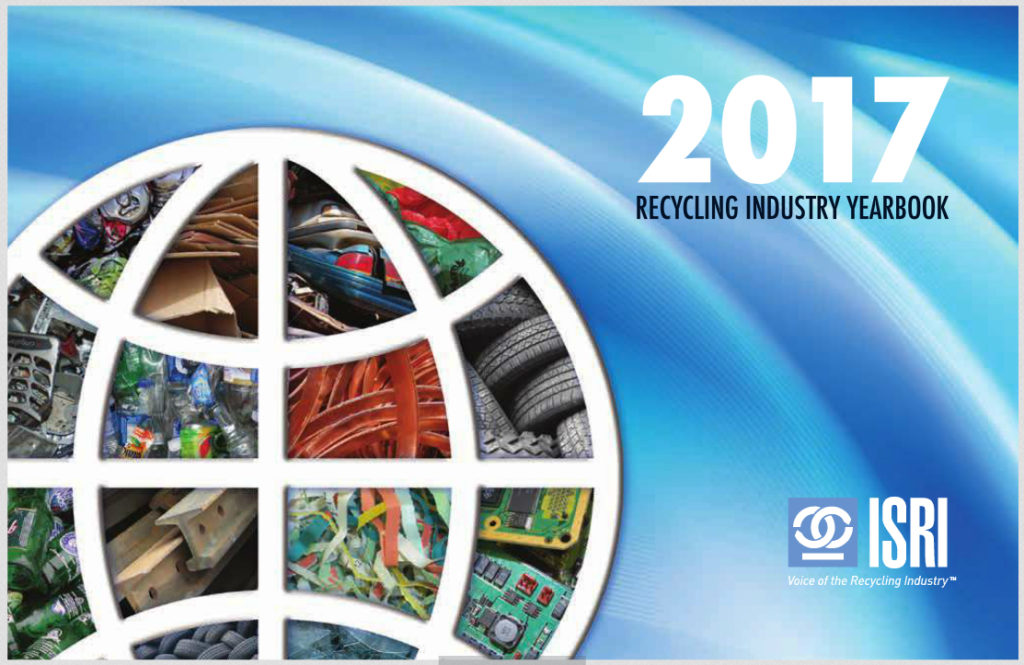
ISRI 2017 Scrap Yearbook
ISRI Scrap Yearbook
The Institute of Scrap Recycling Industries (ISRI) announced the release of its sixth annual ISRI Scrap Yearbook, providing the most up-to-date information and statistics about the U.S. scrap industry and global scrap marketplace. In addition, it aims to provide readers with a deeper understanding of what the scrap industry is and how it works, along with the tremendous economic, environmental, energy, and trade benefits the industry generates globally.
“The recycling industry saw many challenges over the last year, both industry specific as well as macroeconomic,” said Joe Pickard, chief economist for ISRI. “Trade policies in China, the fluctuation in the value of the dollar, overall commodity prices, shipping and transportation costs, and regulatory burdens have all impacted the scrap recycling industry in one way or another. The resiliency of the industry and how it responds to such challenges is why our industry is a key indicator of the overall economy.”
View the Yearbook: scrap2.org/yearbook
Statistical highlights from the Yearbook include:
- Nearly 130 million tons of scrap metal, paper, plastics, electronics textiles, glass, and rubber processed in the U.S. and more than 800 million tons consumed globally;
- The U.S. exported more than 37 million metric tons of scrap commodities valued at $16.5 billion to more than 155 countries;
- Recovered paper and ferrous scrap represent the bulk of U.S. scrap exports by volume, combining for more than 32 million metric tons;
- More than 8 million metric tons of nonferrous scrap valued at approximately $30 billion was processed in the United States last year;
- Major export destinations for U.S. scrap last year included China ($5.2 billion), Canada ($2 billion), Mexico ($927 million), India ($848 million), South Korea ($752 million), and Turkey ($696 million);
- Since 2000, net exports of U.S. scrap have made a positive contribution to the balance of trade amounting to more than $200 billion;
- Over 534,000 U.S. jobs directly and indirectly supported by the industry;
- Nearly $117 billion in U.S. economic activity generated; and
- Approximately $13.2 billion in federal, state, and local tax revenue collected in the U.S.;
- The nearly 130 million metric tons of commodities recycled in the U.S. last year saved the CO2 equivalent of 410 million tons of greenhouse gas emissions, equal to the energy use of more than 43 million homes for one year.

